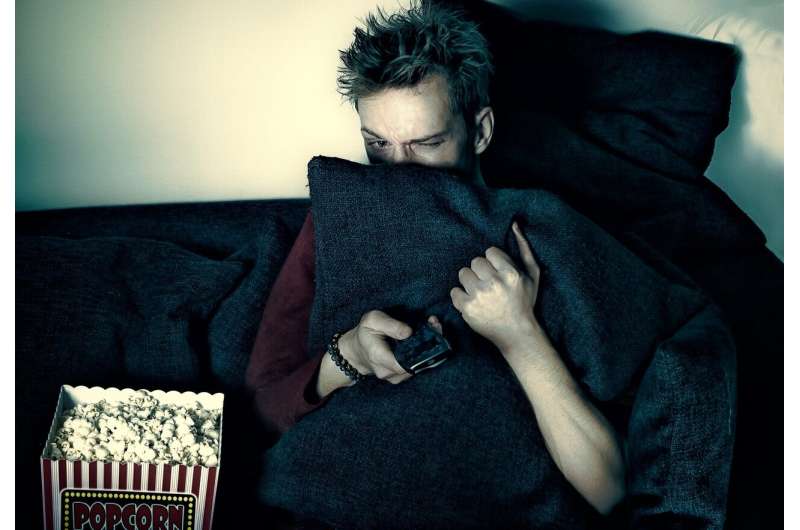Credit: CC0 Public Domain
Andy Parker's daughter, Alison Parker, was shot and killed on live television more than four years ago. Now, Andy Parker is taking on YouTube and parent company Google to remove graphic content like the murder videos that still exist of his daughter from the video site.
Parker along with Georgetown University Law Center's Civil Rights Clinic filed a complaint with the Federal Trade Commission Thursday against YouTube and Google for deceptive practices on its platform. The complaint alleges YouTube violates its Terms and Services by hosting videos that gruesomely depict violent murders and conspiracy theories that harass and target families.
"They have a responsibility to parents, kids, and the public, in general, to ensure people aren't exposed to this horrific content. They should be protected from this stuff," said Parker.
Alison Parker, a 24-year-old news reporter in Roanoke, Virginia was shot and killed along with cameraman Andy Ward by a former co-worker during a live televised interview in 2015. The gunman, Vester Lee Flanagan, fled the scene before posting the graphic video of the murder on his Facebook and Twitter accounts. The video spread widely and has since been shared thousands of times across YouTube.
Since 2015, Parker has made countless attempts to have videos taken of his daughter's murder that still exist on YouTube. Parker says the responses he's received from both companies have been "outright lies."
"The presence of my daughter's murder on YouTube that is still shown and still hasn't been removed for no reason, violating their terms of service, perpetuates people every hour and every minute of every day," said Parker.
He alleges YouTube's refusal to remove the videos are rooted in a financially incentivized motive. Parker says that to this day he's never seen the video of his daughter's death.
"Mr. Parker, understandably, refuses to watch these videos," the complaint says. "He further cannot stand the thought that videos of his daughter's murder are being used to promote dangerous conspiracy theories, for monetary gain, or simply for pleasure or shock value."
But videos like the one of Alison, aren't the only ones that still persist on the site, Parker charges. The complaint cites four other examples including videos of live streams posted to other social media platforms such as Facebook.
"Videos of Alison's murder are just a drop in the bucket. There are countless other videos on YouTube depicting individuals' moments of death, advancing hoaxes and inciting harassment of the families of murder victims, or otherwise violating YouTube's Terms of Service," the complaint reads.
YouTube said in a statement that the site "rigorously" enforces its polices "using a combination of machine learning technology and human review and over the last few years, we've removed thousands of copies of this video for violating our policies."
The company says it will continue to stay vigilant and improve its policy enforcement. "Our Community Guidelines are designed to protect the YouTube community, including those affected by tragedies," its statement said. "We specifically prohibit videos that aim to shock with violence, or accuse victims of public violent events of being part of a hoax."
The complaint is the first of its kind to challenge YouTube on its far-reaching dissemination of murder and conspiracy theory videos, Georgetown Law's Civil Rights Clinic says. It argues YouTube's failure to comply with its own Terms of Service and remove the murder videos are associated with consumer deception under the Federal Trade Commission Act of 2018.
"Under the FTC Act, YouTube has an obligation not to deceive its users, including parents who believe their children are protected from viewing violent content," said Aderson Francois, the clinic's director. "The FTC must act to ensure that YouTube follows its own rules and ends its practice of callously subjecting families like Mr. Parker's to trauma and harassment."
The clinic and Parker call for YouTube to change its "lax content monitoring process" or face millions of dollars in fines.
In 2018, Georgetown Law's Communication and Technology Clinic filed a complaint with the FTC alleging YouTube channels were collecting kids' personal information without parental consent. The action resulted in $170 million in fines against Google, owner of YouTube.
Both parties state YouTube's removal of this type of content would ensure those who have suffered loss would no longer be subject to torment or abuse from conspiracy theorists and no longer have to police the internet to request the removal of violent content involving their family members.
"We need justice and I think this complaint will lead to that," said Parker. "We think it will lead to protection from parents. If they knew that their kids could see this stuff, they'd never let them watch it again," said Parker.
(c)2020 U.S. Today
Distributed by Tribune Content Agency, LLC.
























